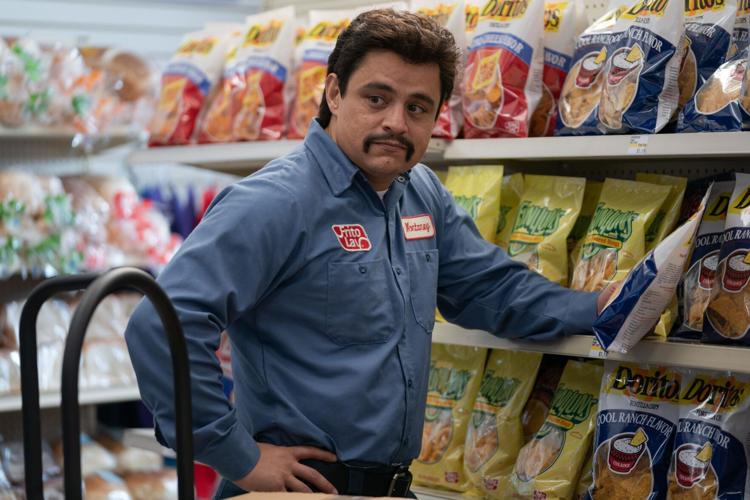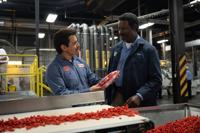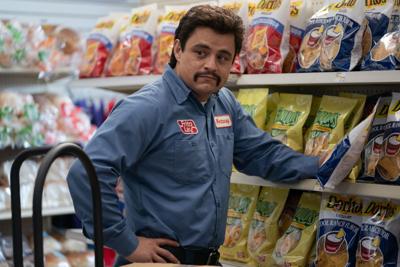This film is based on a book by Richard Montañez, a business executive at Frito-Lay who started as a janitor. In his 2013 book, he claimed to have invented Flamin' Hot Cheetos, the Mexican flavored, spicy version of the crunchy corn puff, which become available nationwide in 1992. However, in 2021, an article in the Los Angeles Times reported that Montañez wasn't involved in the product line and a statement from the company said it doesn't credit him at all with inventing the popular snack. The credit goes to Lynne Greenfeld and others.
It's like learning that Thomas Edison didn't invent the light bulb or that Christopher Columbus didn't discover America. There's an argument to be made for why Edison and Columbus can take the credit that they took. I'm not sure Montañez can do the same. Montañez taking credit makes him either a liar or a person supremely fudging the facts. His story therefore is less informational and more inspirational, given who he was and where he came from. He's not exactly P.T. Barnum. Some might compare him to James Frey or Stephen Glass. I'm inclined to put him into that category, but it doesn't necessarily take away from this Hollywood film, which that label carries with it a long history of fudging facts.

Ironically, this film, directed by Eva Longoria (Telenovela and Desperate Housewives), is structured in a way that suggests an unreliable narrator. The film includes a lot of voice-overs that has Jesse Garcia (The Mother and Quinceañera) who plays Richard Montañez, a Mexican-American who came of age in the tail-end of the Chicano movement in southern California. Instead of the labor revolution, he initially was pulled into criminal activity for local drug gangs. Having dropped out of high school, the only, legitimate job he could land once he got married and had two sons was a janitor at Frito-Lay's Rancho Cucamonga factory. As Richard narrates the early years of his life in the 70's and 80's, we hear him embellish or provide imagined versions of moments in his life. Longoria subsequently provides visuals of those imagined moments.
These fantasies as it were are over-the-top and meant to be ridiculous. They're meant to seem not true. It's meant for comedic effect. If you've seen Ant-Man (2015), the character of Luis, played by Michael Peña, does a similar thing where he narrates moments out of his life. His narration includes him doing the dialogue of other people. The scene will show those other people speaking but Luis' voice is dubbed over them, seemingly out of sync. It's akin to Drunk History (2013). Knowingly or not, this narration device is comedic and could be a way of diffusing criticisms of Montañez's veracity.

Instead of being a biopic or a biographical picture, this film is more historical fiction. Even if one didn't know that Montañez's account was false or in dispute, the process and events in regard to making and marketing Flamin' Hot Cheetos feels apocryphal or fabricated for inspirational sake. Given the struggles of Latino people in this country, this film is aimed at being a capital I, inspirational story for working-class Latinos and exalt them for their hard work, which has become fundamental to so many industries but whom are often dismissed, disrespected or discriminated. Putting aside Montañez's role in Flamin' Hot Cheetos or lack thereof, his rags-to-riches story is thusly inspirational, and Garcia's performance is endearing and charming.
It's ironic that this film is playing in June, which is Pride Month. Pride Month is typically for the LGBTQ community, but this film is all about Mexican pride. It's such a celebration of Mexican culture, food and people. It's reminiscent of the ending of Ben Affleck's Air (2023) but instead of pitching how great Michael Jordan is, it's pitching how great Mexicans are.

Rated PG-13 for language and brief drug material.
Running Time: 1 hr. and 38 mins.
Available on Hulu.













